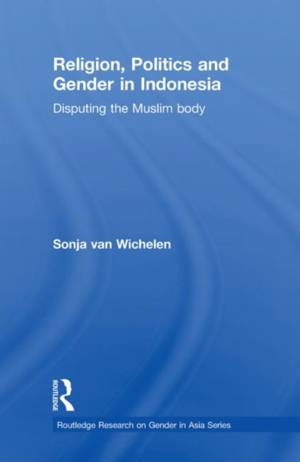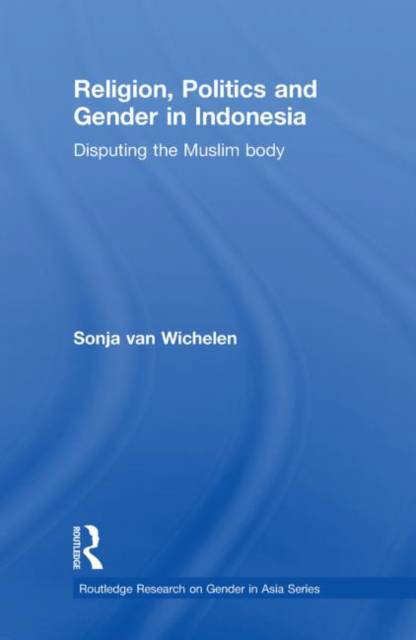
- Afhalen na 1 uur in een winkel met voorraad
- Gratis thuislevering in België vanaf € 30
- Ruim aanbod met 7 miljoen producten
- Afhalen na 1 uur in een winkel met voorraad
- Gratis thuislevering in België vanaf € 30
- Ruim aanbod met 7 miljoen producten
Omschrijving
The political downfall of the Suharto administration in 1998 marked the end of the "New Order" in Indonesia, a period characterized by 32 years of authoritarian rule. It opened the way for democracy, but also for the proliferation of political Islam, which the New Order had discouraged or banned. Many of the issues raised by Muslim groups concerned matters pertaining to gender and the body. They triggered heated debates about women's rights, female political participation, sexuality, pornography, veiling, and polygamy.
The author argues that public debates on Islam and Gender in contemporary Indonesia only partially concern religion, and more often refer to shifting moral conceptions of the masculine and feminine body in its intersection with new class dynamics, national identity, and global consumerism. By approaching the contentious debates from a cultural sociological perspective, the book links the theoretical domains of body politics, the mediated public sphere, and citizenship. Placing the issue of gender and Islam in the context of Indonesia, the biggest Muslim-majority country in the world, this book is an important contribution to the existing literature on the topic. As such, it will be of great interest to scholars of anthropology, sociology, and gender studies.
Specificaties
Betrokkenen
- Auteur(s):
- Uitgeverij:
Inhoud
- Aantal bladzijden:
- 184
- Taal:
- Engels
- Reeks:
Eigenschappen
- Productcode (EAN):
- 9780415626200
- Verschijningsdatum:
- 29/03/2012
- Uitvoering:
- Paperback
- Formaat:
- Trade paperback (VS)
- Afmetingen:
- 156 mm x 234 mm
- Gewicht:
- 267 g

Alleen bij Standaard Boekhandel
Beoordelingen
We publiceren alleen reviews die voldoen aan de voorwaarden voor reviews. Bekijk onze voorwaarden voor reviews.











